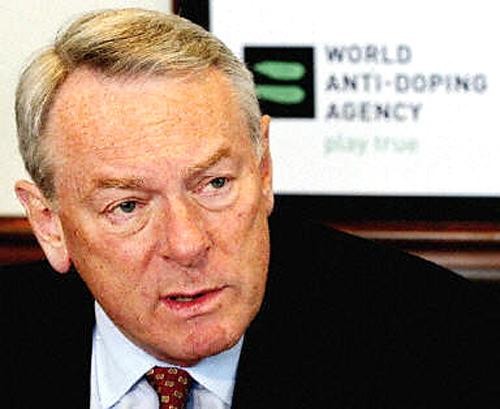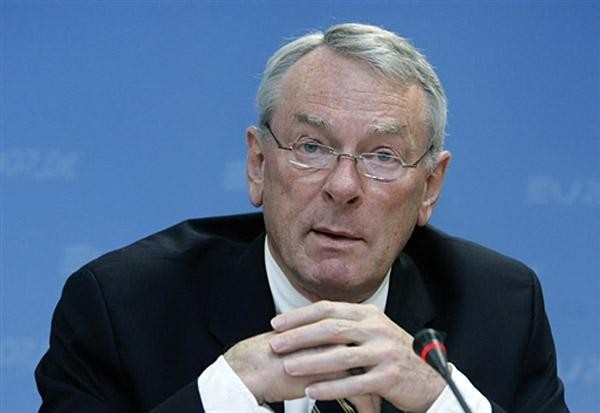Pound says sponsors should insist on anti-corruption clauses
Former WADA chief calls on IOC to drive change


Dick Pound, former president of WADA and former vice-president of the IOC, has warned sports sponsors that they should insist on anti-corruption clauses in their contracts with sports organisations. Pound was speaking at the Right To Play conference in Cologne, Germany.
“Not to be overlooked in any consideration of fighting corruption in sport would be the possible range of actions on the part of sponsors. Some argue that cycling would never have begun a serious fight to eliminate doping in sport had some of the team sponsors not walked away from their sponsorships, or decided not to renew their sponsorships,” said Pound, who has vast experience in the sporting arena and has witnessed cycling go through some of its most turbulent years of doping scandals and allegations of corruption.
“If I were providing professional advice to potential sponsors of sporting events or sport organizations, I would be sure to advise them to insist upon anti-corruption provision in the contract, which would allow the sponsor to withdraw at any time if corruption occurred and to recover any amounts paid in respect of the sponsorship, plus amounts incurred by the sponsor in activation of the sponsorship. “
A number of cycling teams already have clauses in their contracts that allow them to terminate the sponsorship of their team if a rider tests positive. This has happened before in the case of T-Mobile, when the German company pulled out of the sport after a number of doping-related scandals that riddled the sport of cycling. The final straw came when Patrik Sinkewitz tested positive in 2007 at the Tour de France and the team folded.
Although the Telekom void was filled by investment, and later by a new American team run by Bob Stapleton, Pound’s words are a stark reminder of just how significant sponsorship is within the sport. Arguably, with cycling’s basic financial model of sponsorship, it is of paramount importance.
“Remember that if sponsorship disappears from organized sport, organized sport disappears from the face of the planet. Organized sport, particularly professional sport, depends on private sector support, not government support. The private sector is, therefore, in a position to insist that any organization it sponsors be free of corruption.”
Corruption within sport
Get The Leadout Newsletter
The latest race content, interviews, features, reviews and expert buying guides, direct to your inbox!
Pounds sentiments on sponsorship formed part of a longer debate on corruption levels within sport. While he did not point fingers at any one particular body, in rather more alarming terms, he took aim at the ‘overwhelming majority’ of international federations within the Olympic movement – that includes cycling – which have not dealt with corruption.
“I believe quite firmly that sport, in and of itself, does not have all of the tools necessary to eliminate corruption in sport,” he said. “This was true of the variation of corruption described as doping and it is, perhaps, even more true with respect to generalized corruption.”
He called on the IOC – a body that has been plagued by corruption itself – to develop plans to drive change within the sports organizations.
“It will have to develop a comprehensive plan to combat corruption in all its forms. It will have to analyze which actions can be taken by sport, which by governments alone, and which on a shared basis. It will have to then convince sports authorities that they must buy into their own responsibilities and to make meaningful efforts to respond to these responsibilities before they can hope convince governments of the importance of governmental involvement in the whole process.”
Daniel Benson was the Editor in Chief at Cyclingnews.com between 2008 and 2022. Based in the UK, he joined the Cyclingnews team in 2008 as the site's first UK-based Managing Editor. In that time, he reported on over a dozen editions of the Tour de France, several World Championships, the Tour Down Under, Spring Classics, and the London 2012 Olympic Games. With the help of the excellent editorial team, he ran the coverage on Cyclingnews and has interviewed leading figures in the sport including UCI Presidents and Tour de France winners.
